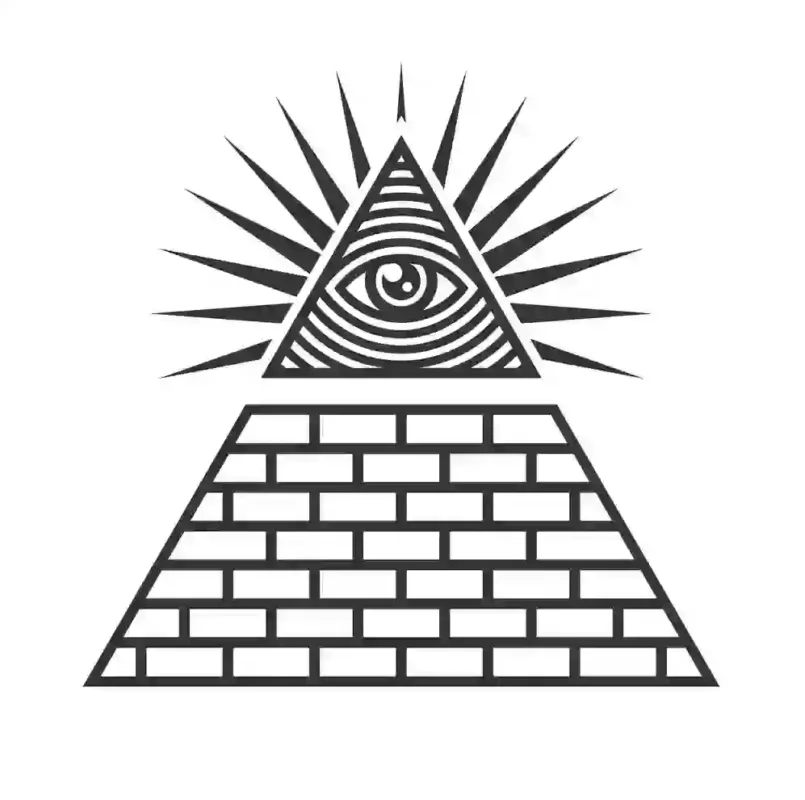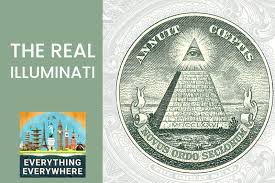The Illuminati’s rise to power was short-lived, and their ultimate demise is a controversial and highly debated topic. Many factors contributed to the decline of the Illuminati, including internal disputes, external pressures from authorities, and changing political climates. In this article, we will explore the factors that led to the suppression and decline of the Illuminati.

Internal Disputes
One of the main factors that contributed to the decline of the Illuminati was internal disputes. After the death of the group’s founder, Adam Weishaupt, in 1830, a power struggle ensued among the remaining members. The dispute centered around the direction of the group and its goals. Some members wanted to continue promoting Enlightenment ideals, while others wanted to take a more radical approach.
As a result of these disputes, the group became increasingly fragmented, with members splitting off into different factions. This infighting weakened the group and made it more vulnerable to external pressures.
External Pressures
The Illuminati’s secretive nature and radical ideas made it a target for authorities who viewed the group as a threat to their power. In 1785, the Bavarian government outlawed the Illuminati, and many of its members were arrested and prosecuted. The government also seized the group’s assets, including its vast library and archives.
The suppression of the Illuminati did not end with the Bavarian government. Other European governments, including those in France and Italy, also cracked down on the group. These pressures forced many members to go underground, and the group’s activities became more clandestine.


Changing Political Climates
The late 18th and early 19th centuries were marked by significant political upheaval in Europe. The French Revolution, which began in 1789, was a major turning point in European history and had far-reaching consequences for the Illuminati.
Many members of the Illuminati supported the French Revolution, seeing it as an opportunity to advance their goals of promoting Enlightenment ideals and overthrowing the old order. However, the revolution also led to increased repression of secret societies, and the Illuminati was no exception. As a result, the group was forced to retreat even further into secrecy.
Legacy and Influence
Despite its relatively short lifespan, the Illuminati had a significant impact on European history and culture. Its radical ideas and promotion of Enlightenment values helped to pave the way for modern democracy and secularism. Many prominent thinkers, including Johann Wolfgang von Goethe and Johann Gottfried Herder, were members of the Illuminati, and their ideas continue to influence modern thought.
However, the legacy of the Illuminati is also fraught with controversy and conspiracy theories. Some believe that the group still exists today and is actively working to undermine governments and institutions around the world. These theories, while largely unfounded, continue to capture the public imagination and contribute to the mystique surrounding the Illuminati.
The suppression and decline of the Illuminati was a complex and multifaceted process. Internal disputes, external pressures, and changing political climates all played a role in the group’s ultimate demise. However, the legacy of the Illuminati lives on, both in the ideas and values it promoted and in the enduring fascination it continues to hold for people around the world.
After their initial growth and success, the Illuminati faced significant opposition from both the Bavarian government and the Catholic Church. In 1784, the Bavarian government, which had initially been somewhat tolerant of the group, began cracking down on secret societies in the wake of the French Revolution and fears of subversion. The government issued an edict banning all secret societies, including the Illuminati, and seized the group’s papers and documents.
The Illuminati responded by going underground, but their continued existence was threatened by several factors. First, the group was internally divided, with Weishaupt and other leaders disagreeing over the direction of the organization. Second, several members of the group were arrested and interrogated by the government, leading to the exposure of some of the group’s secrets and the identification of its members. Finally, the publication of several books critical of the Illuminati, including Augustin Barruel’s Memoirs Illustrating the History of Jacobinism and John Robison’s Proofs of a Conspiracy, contributed to a growing public perception that the group was dangerous and subversive.
By the end of the 18th century, the Illuminati had largely ceased to exist as a coherent organization. Weishaupt himself had fled Bavaria and gone into exile in Gotha, where he lived in obscurity until his death in 1830. Some former members of the group went on to join other secret societies, such as the Freemasons or the Carbonari, but the Illuminati as an organization had been effectively dismantled.
In the years since the Illuminati’s decline, the group has continued to fascinate and inspire speculation, with conspiracy theories about the Illuminati persisting to the present day. Some have suggested that the group survived in secret, or that its members went on to play key roles in shaping world events. Others have pointed to the group’s legacy in popular culture, from Dan Brown’s novel Angels and Demons to the many internet memes and jokes about the Illuminati’s supposed influence in everything from politics to pop music.
External Links
-
-
-
- The Illuminati: The Secret Society That Hijacked the World
- The Illuminati Conspiracy: The New World Order
- [Adam Weishaupt and the Origins of the Illuminati](https://www.thoughtco.com/adam-weishaupt-and-the-illuminati-1221901
-
-